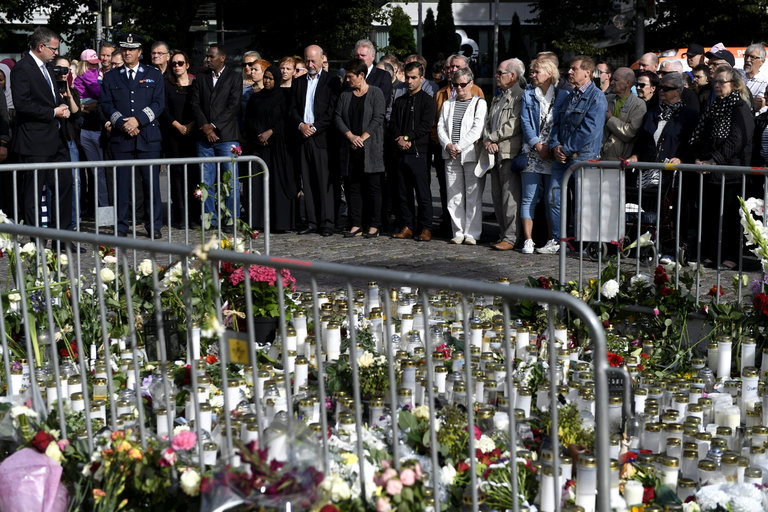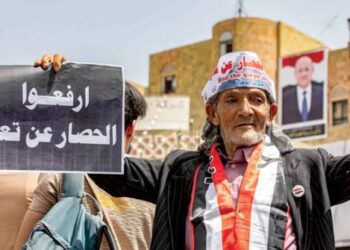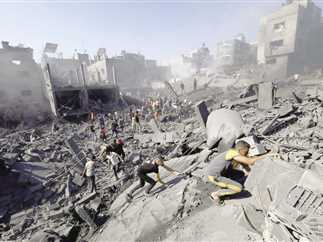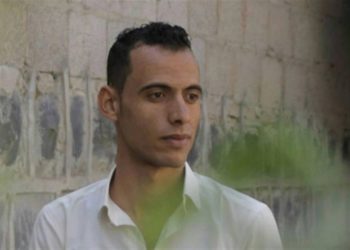The Moroccan teenager accused of carrying out Finland’s first jihadist terrorist attack had been flagged months ago for extremist views, around the time he was denied asylum, the authorities said on Monday.
The teenager, Abderrahman Mechkah, 18, stabbed two women to death and injured eight other people on Friday afternoon in the center of Turku, a city of about 180,000, according to the police. Officers shot and injured him.
The authorities are treating the case as an act of terrorism targeting women.
The police in southwestern Finland got a tip at the beginning of this year about the teenager, saying he was “radicalized and interested in extremist thinking,” according to Jyri Rantala, a spokesman for the Finnish Security Intelligence Service, or SUPO.
The tip was passed on to the intelligence service but was not given priority because there was no reference to a specific threat, Mr. Rantala said.
The German Interior Ministry said that Mr. Mechkah passed through Germany in late 2015 and early 2016, evidently as part of the record wave of people fleeing poverty and violence and seeking refuge in Western Europe. He arrived in Finland in the spring of 2016, and later stayed at a processing center for asylum seekers in the Pansio area of Turku.
ADVERTISEMENT
Continue reading the main story
In a phone interview, Paivi Nerg, an official at the Finnish Interior Ministry, confirmed that Mr. Mechkah had been denied asylum at the beginning of this year. She said he was not deemed to merit asylum because Morocco is not a conflict zone or near one.
Asylum officials share information with the police and intelligence and border officials, but in this case the tip about Mr. Mechkah was too vague to act on, she said.
Mr. Mechkah will face two charges of murder and several counts of attempted murder with terrorist intent. Four other Moroccans living in Finland will also face charges connected to the attack.
The authorities have asked that all five be detained ahead of the trial. Mr. Mechkah is scheduled to appear in court on Tuesday morning via a video link from the hospital where he is being treated.
The two women who were killed have not been publicly identified. The authorities have said only that one was born in 1951 and the other in 1986. One was a Jehovah’s Witness, according to an announcement on the Christian denomination’s website.
Finland has a long history of nonintervention and neutrality in foreign affairs; for decades, it was a buffer between the West and the Soviet Union. In 1995, after the Cold War ended, Finland joined the European Union along with Sweden and Austria. But like Sweden and Austria, Finland is not a member of NATO.
A nation of five million, Finland took in 32,500 asylum seekers in 2015, a record number for the country, and many of them Muslims. While there have been few signs of anti-immigrant or anti-Muslim sentiment, the attacks on Friday — the first in Finland to be associated with religious extremism — have people talking about a loss of innocence.
 “We have feared this,” Prime Minister Juha Sipila said on Friday. “We are not an island anymore.”
“We have feared this,” Prime Minister Juha Sipila said on Friday. “We are not an island anymore.”Antti Pelttari, the director of SUPO, told the national broadcaster YLE on Saturdaythat the suspect was not among the 350 people the agency is tracking for possible ties to terrorism.
Mr. Rantala, the intelligence service’s spokesman, said the number of people being monitored had risen more than 80 percent in just a few years.
Mr. Pelttari said it was possible that the suspect may have developed extremist views online. The Islamic State has not claimed responsibility for the Turku attack, but many of its adherents have been recruited through online videos.
“One possibility is that he was doing something inspired by propaganda or by another person and, in that sense, was trying to accomplish some of the objectives of a terrorist organization,” Mr. Pelttari said of the suspect.
Seppo Kolehmainen, the national police commissioner, on Monday praised the work of investigators on the case. Only three minutes elapsed between a call to the nearest patrol unit and the shooting of the suspect, he told YLE.
“It is heartening that our field units performed admirably in their initial response, and the dangerous situation was stopped in its tracks,” he said.
The authorities have said very little about the investigation, and have not specified the assailant’s motivations, nor whether he had accomplices or links to terrorist organizations.
“The question is at what stage he possibly became radicalized and what were the things that influenced this,” Mr. Kolehmainen told YLE.
Leena Malkki, a counterterrorism expert and lecturer at the University of Helsinki, said the attack was the first in Finland since World War II and the most serious deadly violence in the country since shootings at a high school in 2007 and at a university in 2008.
International terrorist organizations have had a weak or sporadic presence in Finland compared with other Nordic countries like Sweden and Denmark. Yet Ms. Malkki said Friday’s attack was not surprising.
“It has largely been expected that the changing situation in Europe is going to affect Finland in the form of an attack at some point,” she said.
The center-right government has proposed legislation that would let the intelligence service monitor cross-border electronic communications if the authorities suspected a serious threat to national security. In a news conference on Saturday, Mr. Sipila, the prime minister, said that increasing the powers of counterintelligence agencies was a legislative priority.







